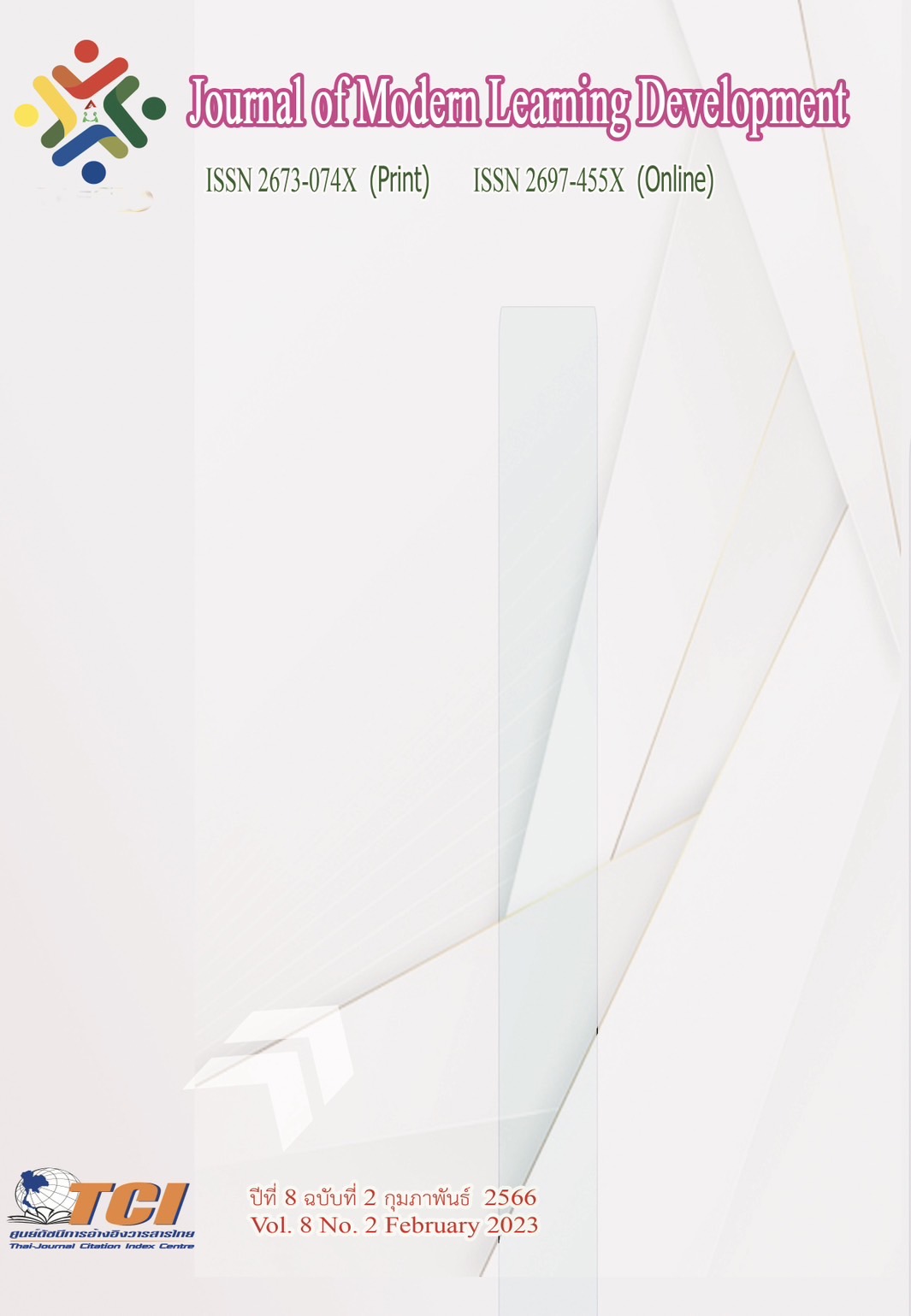The Influence of Team Fault Zone on Team Effectiveness : The Moderating Effect of Paradoxical
Main Article Content
Abstract
The research on the relationship between team fault zone, interactive memory system and team efficiency. In order to gain advantages in the increasingly fierce market competition, it has gradually become one of the main work forms adopted by the enterprise to complete the work tasks. This paper is based on information processing theory, social cognitive theory, social exchange theory, A research model describing the relationship between team fault zone, interactive memory system, paradoxical leadership behavior and team efficiency was constructed, After the basic conceptual model and proposing the research hypothesis, Finally, 502 questionnaires from 107 project teams, valid questionnaire data, Through the empirical research methods, it is found that: (1) the social classification fault zone has a significant negative impact on both the interactive memory system and the team efficiency; (2) The information cognitive fault zone has a significant positive impact on both the interactive memory system and the team efficiency; (3) The interactive memory system plays a significant intermediary role in the relationship between the two types of fault zones and team performance; (4) Paradoxical leadership behavior has a significant and positive impact on the relationship between social classification fault zone, information cognition fault zone and team efficiency.
Article Details
References
Bezrukova K, & Jehn K A , (2009).Thatcher S M B .Do workgroup faultlines help or hurt?A moderated model of faultlines , team identification, and group performance. 0rganization Science. 20 (1), 35-50.
Cronin M A, Bezrukova K, & Weingart L R, et al.(2011)Subgroups within a team: The role of cognitive and affective integration.Journal of 0rganizational Behavior , 32 (6), 831 - 849.
Hackman J R.(1987).The design of work teams.In J.W.Lorsch (Ed.), Handbook of organizational behavior.Englewood Cliffs,NJ : Prentice Hall.315?42.
Huang Haiyan, & Li Qianwen.(2011) Personality heterogeneity and innovation performance of R & D team members: with the interactive memory system as the intermediary variable. Intelligence Journal, 30 (4), 186-191.
Jehn K A, & Bezrukova K.(2010)The faultline activation process and the effects of activated faultlines on coalition formation, conflict, and group outcomes. Organizational Behavior and Human Decision Processes , 112 (1), 24-42.
Lau D C, & Murnighan J k.(1998).Demographic diversity and faultlines : The compositional dynamics of organizational groups .Academy of Management Review, 23 (2), 325-340.
Li Hao, C & Huang Jian.(2018) Study on the influence of team knowledge hiding on interactive memory system. Nankai Management Review, 21 (4), 134-147.
Liao J, Jimmieson N L, & O'Brien A T, et al.(2012) Developing transactive memory systems: Theoretical contributions from a social identity perspective .Group Organization Management, 37 (2), 204-240.
Lin Linna, Shi Jiangang, middle & Tang Dynasty.(2015) Consider the knowledge hidden project team knowledge sharing incentive research. Scientific research management, 36 (5), 162-170.
Luo Jinlian, Hu Wenan, & Zhong Jing.(2017) The impact of paradoxical leadership and team vitality on team innovation mechanism research management comment 29 (7), 122-134..
Chen Shuai. (2012) Research on the relationship between team fault zone and team performance from the perspective of knowledge. PhD dissertation of Zhejiang University.
Lv Jie, C & Zhang Gang.(2015) Impact mechanism of knowledge heterogeneity on the creativity of knowledge-based teams: the perspective based on interactive cognition. Psychological Journal, 47 (4), 533-544.
McGrath J.E.(1964)Socia Psychology : A Brief Introduction.New York:Holt , Rinchart &Winston, 1964, 102-103.
Starke D F A.(1999).The formation of breakaway organizations: Observations and a process model.Administrative Science Quarterly , 44 (4), 792-822.
Tjosvold D, Poon M, & Yu Z.(2005)Team Effectiveness in China : Cooperative Conflict for Relationship Building Human Relations, 58 (3), 341-367..
Zhang Gang, & G Xiong Li.(2007) Review and prospect of interactive memory system research. Progress in Psychological Science, (5), 840845.


